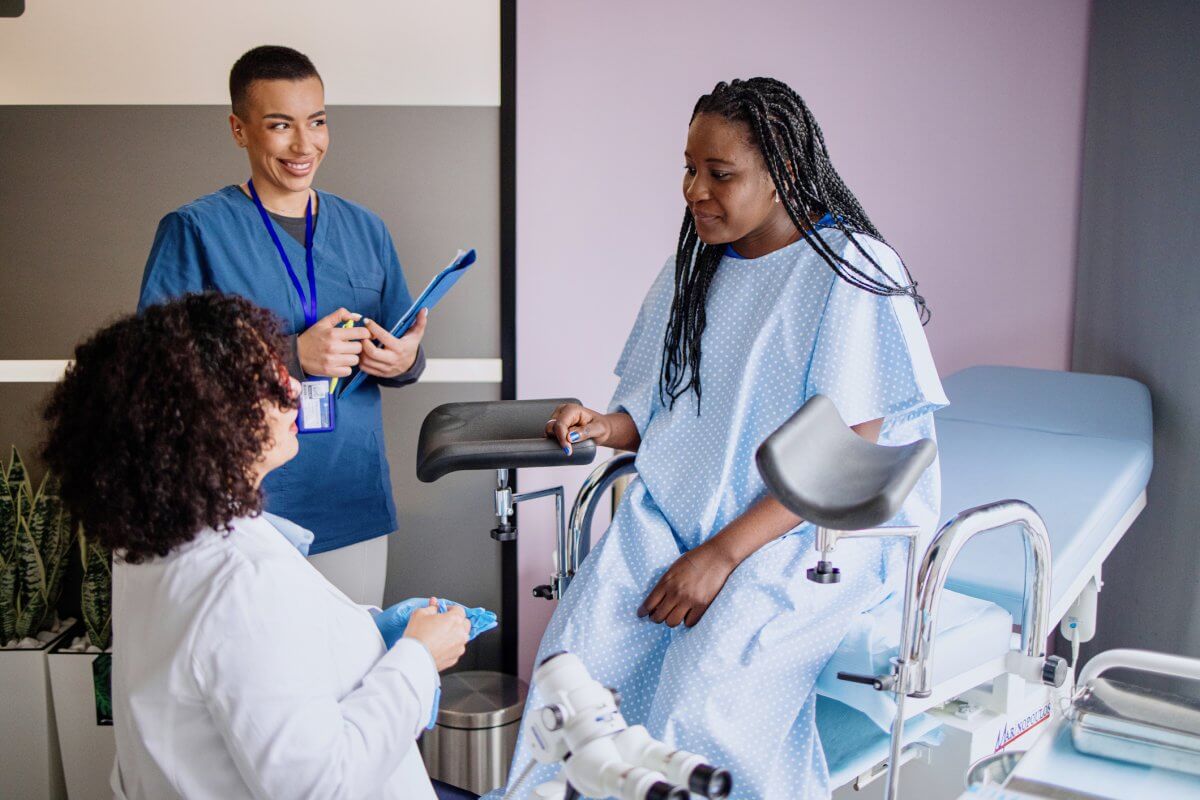The embryo transfer. It’s one of the most important and
exciting milestones of the surrogacy process —the moment you actually become
pregnant with the intended parents’ baby!
But before you can get to this point, you’ll work closely
with fertility specialists at the intended parents’ clinic to prepare your body
for the best possible chance of a successful pregnancy. That includes ensuring
your uterine
lining is the ideal thickness for the embryo to successfully implant.
Here, we’ll explain how you can work with your medical professionals to thicken your uterine lining — and six common culprits that could be affecting that process.
If you have more questions, are in need of support, or simply can’t wait to start your surrogacy journey, don’t hesitate to contact us today. You can also make use of online resources like our instagram page to learn more about surrogacy.
Preparing Your Uterus for IVF
Everyone knows how much is riding on the embryo transfer.
The intended parents you work with may have a precious few embryos with which
to attempt surrogacy, and you’ll spend a lot of time before the procedure
preparing your uterus for the best possible chance of success.
This preparation actually starts at the very beginning of
your surrogacy journey. Before you are even accepted into our surrogacy program
(or any other surrogacy program), you will go through a rigorous screening
process to rule out any major concerns that could impact your uterine
lining, such as fibroids, scar tissue, endometriosis and other conditions.
You’ll also need to have a healthy BMI and be smoke- and drug-free — other
factors that can impact uterine lining.
When it comes time to begin the medical
process, your doctors at the fertility clinic will prescribe you a
number of medications to thicken your uterine lining and prepare you for
the embryo transfer, and you’ll be monitored closely to ensure everything progresses
as it should.
Still, despite all of these preparations, there’s a chance
that a woman’s uterine lining just isn’t quite as thick as the doctors would
like it to be. There are a number of reasons why this could be — many of which
are beyond your control (and some of which even doctors don’t necessarily
understand).
6 Factors that Could Impact Your Uterine Lining
Remember, every woman’s body and situation is different. While
the information in this article is meant to be informative and helpful, none of
it is a replacement for qualified medical advice. As always, we recommend you
speak with a fertility specialist or gynecologist for the most accurate
information about your specific situation and any actions you should take to
improve the thickness of your uterine lining.
With that being said, here are six things that may be
affecting your uterine lining as a surrogate:
1. Your medications
Obviously, the course
of medication prescribed to you leading up to the embryo transfer will
affect the thickness of your uterine lining. That’s what it’s designed to do!
Hormones like estrogen and progesterone will help create a welcoming
environment for the embryo to implant.
You’ll likely attend several monitoring appointments leading
up to the embryo transfer to assess the thickness of your uterine lining, and
your doctor may make changes to your medication protocol as needed to achieve
the ideal thickness. Again, every woman’s body is different, and the exact
course of medication that you will need to take will vary depending on your
individual needs and circumstances — which is why it’s so important to always
take all medications on time as directed by your doctor.
2. Physical activity
It’s a widely agreed-upon fact: One of the best things you
can do to encourage a healthy uterine lining is to get moving! Regular,
moderate exercise, like yoga, walking or riding a bike, can improve blood flow
throughout the body, including to the uterus — which can, in turn, improve the
thickness of your uterine lining.
The key is to get your blood pumping without putting too
much stress on your body; strenuous exercise for four or more hours per week
may actually reduce
IVF success rates. Stick to a couple of hours of moderate exercise per week
for the best results.
There may be other ways to improve blood circulation, too. Acupuncture
has shown some promise as a treatment to help improve blood flow, and while
the reviews are mixed, it may not hurt to treat
yourself to a massage. If you are considering any of these treatments or
taking up a new exercise routine, just run it by your doctor and surrogacy
specialist first!
3. Certain substances
Caffeine and nicotine — substances you’re probably cutting
out anyway, per your surrogacy contract — are known to restrict blood flow. But
there are other, more surprising substances that you
may want to avoid, like certain allergy and cold medications that stop
nasal swelling. These are designed to constrict your veins to reduce swelling.
And less blood flow = thinner lining.
4. Your diet
It’s always a good idea to strive for a healthy, balanced
diet, but that
may be especially important as you prepare for the embryo transfer.
Iron-rich foods like red meat and dark leafy greens, as well as healthy fats
like olive oil, avocado and raw nuts, help your body to produce blood — which
is necessary to create a thick uterine lining. Your doctor might also recommend
certain dietary supplements, like fish oil, vitamin E or iron supplements.
At the same time, there may be certain foods, spices or
supplements to limit or avoid. For example, you may want to skip the turmeric
tea; one study in mice
linked curcumin (an anti-inflammatory substance found in turmeric) with a lower
rate of implantation. Talk to your doctor about any alterations you may need to
make in your own diet.
5. Exposure to chemicals
One
small study suggests that phthalates, a group of synthetic chemicals used
in plastics and cosmetics, can impact implantation in women undergoing IVF. The
study looked at 231 IVF patients and tracked their exposure to four major
phthalates. Almost all of the women had been exposed (phthalates
are pretty hard to avoid), but those with the most phthalates in their
systems were twice as likely to
suffer from implantation failure as those with the lowest levels.
The author of the study acknowledged that it is extremely
difficult to minimize exposure to these chemicals because they are found in so
many products. But you can try to limit your exposure by avoiding scented
products and cosmetics that list the following as ingredients:
- Dibutylphthalate (DBP)
- Dimethylphthalate (DMP)
- Diethylphthalate (DEP)
When using plastic food containers or plastic wrap, avoid
products with a recycling number of 3 or the letters “V” or “PVC” printed
underneath the recycling symbol. Stick to plastics number 1, 2, 4 or 5 to
ensure they’re phthalate-free.
6. About a zillion other variables
While you may be able to make some lifestyle changes to
improve your chances of a successful embryo transfer, the thickness of a
woman’s uterine lining is often largely out of her control. As with anything in
nature, there may be many variables at play, some of which you just can’t
change. Ultimately, it’s something that is regulated by your body, and it will
naturally vary from one person to the next.
It’s also important
to note that uterine lining isn’t the only factor that dictates the success of
implantation. In fact, the quality of the embryos being used may be just as, if
not more, important.
As a surrogate, you clearly care a lot about this journey
and about helping intended parents, and you want nothing more than a smooth and
successful process. But, don’t beat yourself up if your uterine lining isn’t
quite where you (or your doctors) would like it to be. You’re doing an
incredible thing by becoming a surrogate, and the fertility clinic you work
with will do everything they can to help make you successful.
To learn more about
the medical process of surrogacy, we encourage you to contact a local fertility
specialist or one of our agency’s surrogacy specialists today.




![6 [Surprising] Things That Could be Affecting Your Uterine Lining](https://www.americansurrogacy.com/blog/wp-content/uploads/2021/05/GettyImages-1250580620-1200x800.jpg)
![How to Speed Up Your Surrogacy Matching Process [3 Tips for Intended Parents]](https://www.americansurrogacy.com/blog/wp-content/uploads/2021/05/GettyImages-1174486567-1200x800.jpg)



